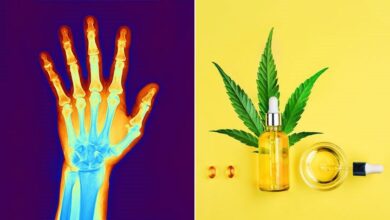CBD Meaning: Understanding the Basics of Cannabidiol

In recent years, CBD has become a buzzword in the health and wellness industry. But what does CBD actually mean? In this comprehensive guide, we will explore the meaning of CBD, its origins, and its potential benefits. Whether you’re new to CBD or looking to deepen your understanding, this article will provide valuable insights.
What is CBD?
CBD stands for cannabidiol, which is one of the many compounds found in the cannabis plant. It is a non-psychoactive compound, meaning it doesn’t produce a “high” sensation like its counterpart, THC. CBD is derived from hemp, a variety of cannabis that contains low levels of THC and higher levels of CBD.
The Origins of CBD
CBD has been used for thousands of years for its potential therapeutic properties. It has been found in ancient texts and historical records from different cultures around the world. However, it was only in recent decades that scientific research and modern extraction methods have allowed for a deeper understanding of CBD and its effects on the human body.
How Does CBD Work?
CBD interacts with the body’s endocannabinoid system (ECS), a complex network of receptors and molecules that help regulate various physiological functions. The ECS plays a role in maintaining balance and homeostasis in the body. CBD interacts with ECS receptors, potentially influencing pain perception, mood, sleep, and more.
The Potential Benefits of CBD
CBD has been studied for its potential benefits in various areas of health and wellness. Here are some of the potential benefits of CBD:
CBD for Pain Relief
CBD may help alleviate pain by interacting with receptors involved in pain perception and inflammation. It has been researched for its potential effectiveness in managing chronic pain conditions.
CBD for Anxiety and Stress
Studies suggest that CBD may help reduce anxiety and stress by interacting with serotonin receptors in the brain. It has shown potential in promoting relaxation and a sense of calm.
CBD for Sleep Disorders
CBD has been explored for its potential to improve sleep quality and address sleep disorders such as insomnia. It may help regulate sleep patterns and promote relaxation.
CBD for Skin Health
CBD is increasingly being used in skincare products for its potential benefits to the skin. It may have anti-inflammatory and antioxidant properties, which can help soothe and nourish the skin.
CBD for Epilepsy and Seizures
One of the most well-known uses of CBD is in the treatment of epilepsy and seizures. CBD has shown promise in reducing the frequency and severity of seizures in certain types of epilepsy.
CBD for Neurological Conditions
CBD is being investigated for its potential in managing neurological conditions such as multiple sclerosis, Parkinson’s disease, and Alzheimer’s disease. While research is still ongoing, CBD’s anti-inflammatory and neuroprotective properties are of interest in these areas.
Different Types of CBD Products
CBD is available in various forms to suit different preferences and needs. Some common types of CBD products include:
CBD Oil
CBD oil is a popular choice and is typically taken sublingually (under the tongue). It allows for easy absorption and provides a customizable dosage.
CBD Capsules
CBD capsules offer a convenient way to consume CBD, similar to other oral supplements. They provide pre-measured doses, making it easy to track your CBD intake.
CBD Topicals
CBD topicals include creams, lotions, and balms that are applied directly to the skin. They are often used for localized relief and may be beneficial for muscle and joint discomfort.
CBD Edibles
CBD edibles are food and beverage products infused with CBD. They offer a discreet and enjoyable way to consume CBD, with options like gummies, chocolates, and beverages.
CBD Vapes
CBD vapes involve inhaling CBD vapor using a vape pen or device. This method provides fast-acting effects, but it’s important to choose high-quality products and be mindful of potential risks associated with vaping.
Is CBD Legal?
The legal status of CBD varies by country and region. In many parts of the world, CBD derived from hemp with low THC content (usually less than 0.3%) is legal. However, it’s crucial to understand and comply with local laws and regulations regarding CBD.
How to Choose High-Quality CBD Products
When selecting CBD products, consider the following factors to ensure their quality and safety:
- Look for CBD products sourced from organically grown hemp.
- Choose products that undergo third-party testing for purity and potency.
- Opt for full-spectrum or broad-spectrum CBD products to benefit from the entourage effect.
- Check for clear and transparent labeling, including CBD content and other ingredients.
- Read customer reviews and check for reputable brands with good manufacturing practices.
CBD Safety and Side Effects
CBD is generally well-tolerated, but some individuals may experience mild side effects such as dry mouth, drowsiness, or changes in appetite. It’s always advisable to start with a low dosage and consult with a healthcare professional, especially if you have any pre-existing medical conditions or are taking medications.




